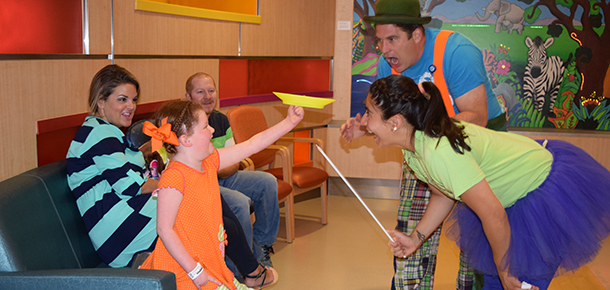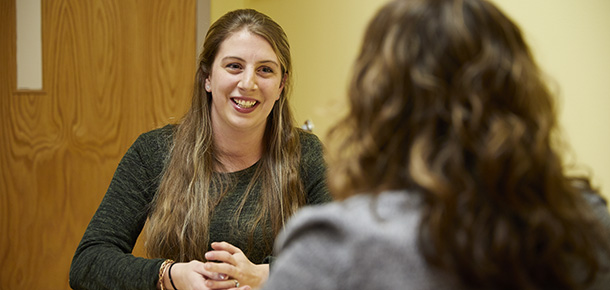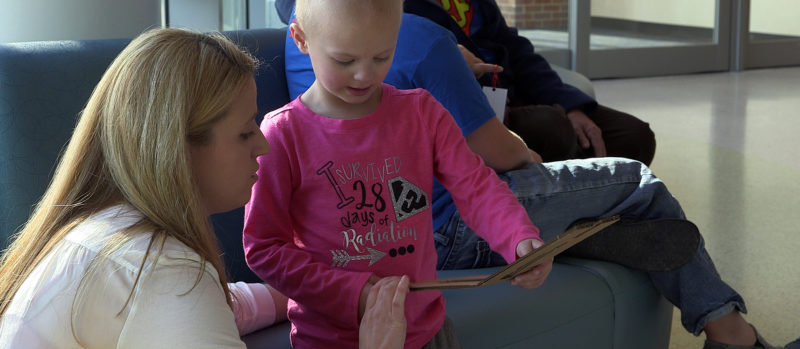Patch Adams had it right. The medical doctor and clown, famously portrayed by the late Robin Williams in a 1998 biopic of the same name, has spent his life showing us just how important laughter, joy and creativity are to the healing process.
I’m no doctor, but I see firsthand how his philosophy impacts lives every single day I go to work at Cincinnati Children’s.
More than 40 years ago Dr. Adams founded The Gesundheit! Institute, a non-profit holistic healthcare organization based in Urbana, Illinois. And today, May 28, he turns 70 years old. Happy birthday, doctor – you certainly have much to celebrate!
 The value of therapeutic clowning programs, like the Circus Wellness program at Cincinnati Children’s, have been gaining prominence in the US since the 1970s and 1980s due in part to Dr. Adams’ pioneering work. These kinds of programs formally got their start at two North American health care facilities during 1986 – first in Winnipeg, Canada and not long after in New York City.
The value of therapeutic clowning programs, like the Circus Wellness program at Cincinnati Children’s, have been gaining prominence in the US since the 1970s and 1980s due in part to Dr. Adams’ pioneering work. These kinds of programs formally got their start at two North American health care facilities during 1986 – first in Winnipeg, Canada and not long after in New York City.
The first time I witnessed the power of the circus in a non-traditional setting was in 1997. I was a clown with Ringling Bros. and Barnum & Bailey when our show in Cincinnati was canceled due to flooding. So, to ease the tension and stress experienced by families in the tristate, a fellow clown and I brought the circus to five area Red Cross shelters. After the experience, I was inspired to start a youth clowning program in Chicago in 2001 and later founded Circus Mojo in 2009 in Ludlow, Kentucky.
Our Circus Wellness program combines compassion with comedic relief. It prescribes immediate enjoyment and empowerment to participants through music, improvisation, and instruction. This year we are celebrating our 5th year of involvement with the medical center thanks to support from the Cooperative Society.
Circus Mojo clowns do not wear red noses, make-up or face paint in order to make kids feel more comfortable. We perform for and with the patients four days per week (five in July) on the concourse, in clinic waiting rooms and at bedsides. The goal is to give kids something to giggle about while teaching them fun new skills like juggling, plate spinning, and balancing feathers. The tricks help kids take their mind off tough, difficult, or scary things they may be going through.
These interactions – something we like to call “Mojo Medicine” – are an invaluable way of improving the patient experience. Families have told me they schedule their clinic appointments on days when they know our performers will be around. Care providers have requested our immediate presence to help calm anxious kiddos. The Orthopaedic Clinic has contracted us to entertain families in the waiting room during busy hours and our performers have consistently earned overwhelmingly positive reviews on patient experience comment cards. And we often meet inpatients and residents at our College Hill Campus where we try to assist in the healing process.
 The success of therapeutic clowning programs at Cincinnati Children’s, and around the world, is a testament to why Dr. Patch Adams’ global message – to put the focus on holistic health care by putting care at the center – is so important. For that reason, I’m working with the Artists in Healthcare Certification Commission on developing a certification process and training center for performers like medical clowns.
The success of therapeutic clowning programs at Cincinnati Children’s, and around the world, is a testament to why Dr. Patch Adams’ global message – to put the focus on holistic health care by putting care at the center – is so important. For that reason, I’m working with the Artists in Healthcare Certification Commission on developing a certification process and training center for performers like medical clowns.
The Institute of Social Circus & Vocational Training Center, based in Ludlow, will be the first facility of its kind dedicated to teaching and developing artists with the skills necessary to bring the circus into educational and medical settings. Our concept is to take therapeutic clowning standards that have been studied, proven and adopted internationally, and teach them to performers here in hopes of continuing to demonstrate the value of this unique form of patient advocacy.
So, from one clown to another, it’s my pleasure to wish Dr. Patch Adams a very happy 70th birthday. For decades you’ve infused children’s health care with love and compassion, smiles and laughs, a wink and a tickle of the funny bone – and you’ve inspired a generation of non-traditional care team members, like me, to do the same.






[…] Medicine and Clinical Psychology Campusditionally, she has spent 100+ days working at the Cincinnati Children’s Hospital, from the Residential Psychiatric unit to the Orthopedic Waiting room. The number of kids, […]